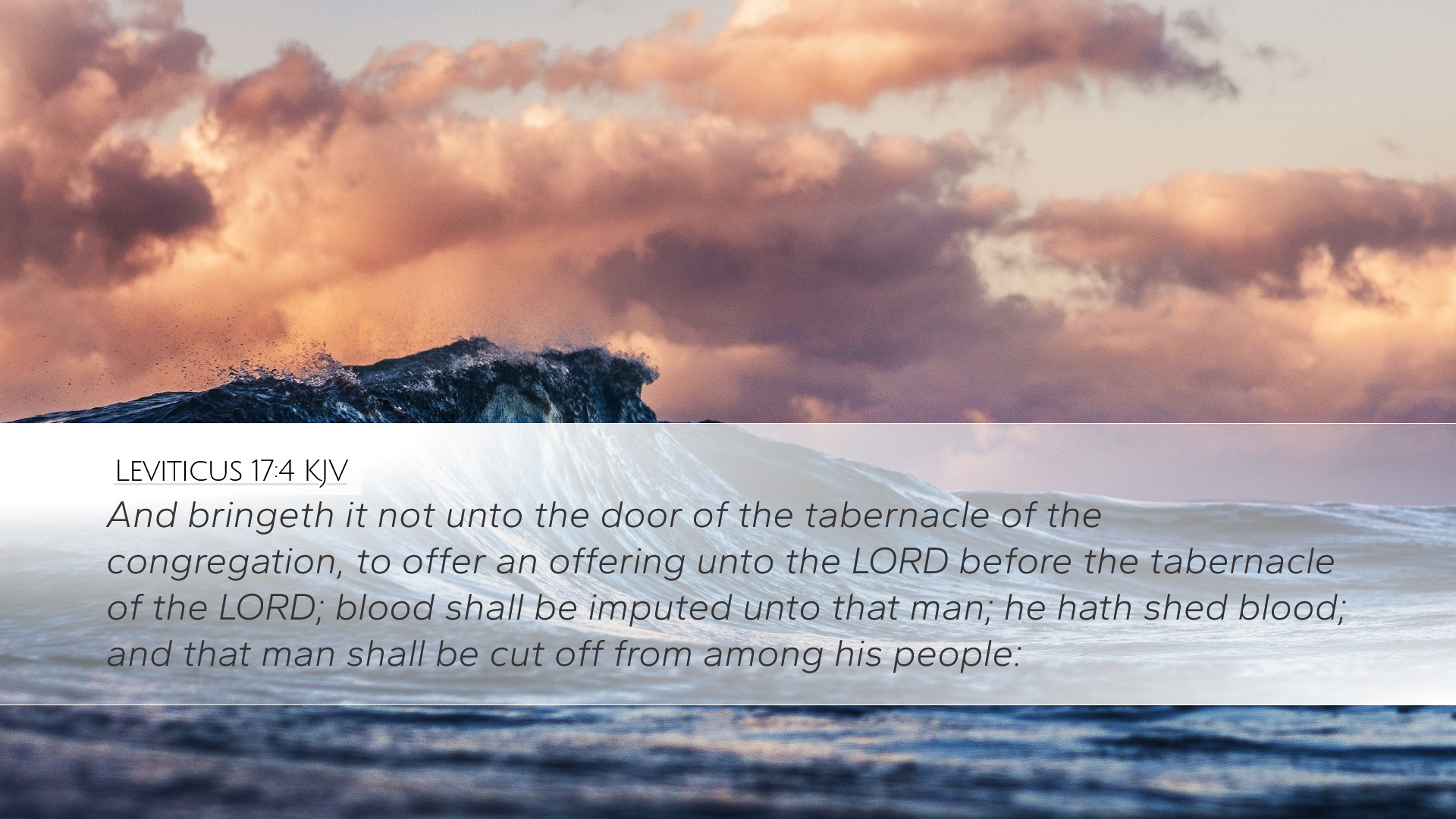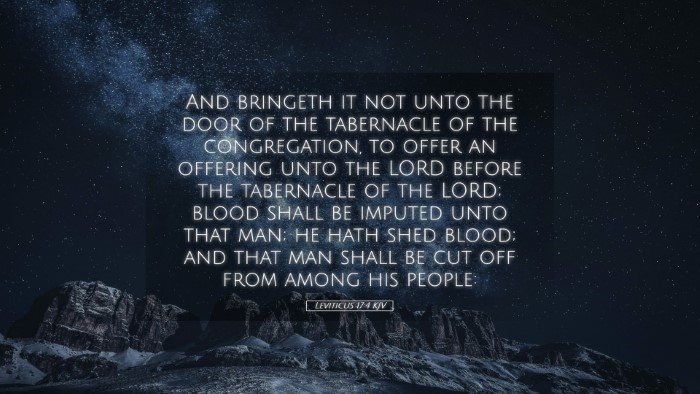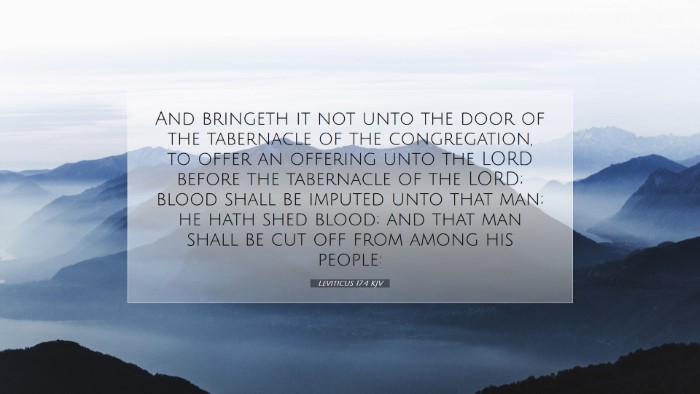Commentary on Leviticus 17:4
Bible Verse (Leviticus 17:4): "And bringeth it not unto the door of the tabernacle of the congregation, to offer an offering unto the Lord before the tabernacle of the Lord; blood shall be imputed unto that man; he hath shed blood; and that man shall be cut off from among his people."
Introduction
This verse from Leviticus speaks to the seriousness of sacrificial offerings in the Israelite religious system. It highlights the requirement for individuals to bring their sacrifices to the designated place of worship, which was crucial for maintaining a proper relationship with God and for communal worship. The consequences of failing to do so were severe, emphasizing the sanctity of the blood and the act of offering.
Commentary Insights
1. Contextual Significance
Matthew Henry emphasizes that this statute signifies the importance of adhering to God's ordained means of worship. By designating a specific location for offerings, God reinforces His divine authority and the necessity for His people to submit to His will.
Albert Barnes elaborates on the implications of "blood imputed" to the person who does not bring their offering to the door of the tabernacle. Blood signifies life and suggests that failure to offer sacrifices rightly leads to a forfeiture of life and relationship with God. This phrase indicates culpability in violating divine commandments.
2. Religious Observance and Accountability
Adam Clarke notes that Leviticus 17:4 underscores the critical need for the Israelites to reflect on their accountability to God regarding religious observance. Failing to present offerings at the designated site signifies a rejection of God's provisions and requirements, which could lead to being "cut off" from the community — a harsh punishment that reflects the seriousness of sin against God.
3. Theological Implications
This verse raises profound theological implications about the nature of sin, sacrifice, and atonement. Matthew Henry asserts that the shedding of blood in the sacrificial system points to a greater redemptive purpose, ultimately fulfilled in Christ's atoning work. The necessity of blood suggests that sin incurs a serious consequence that only blood can remedy, foreshadowing the ultimate sacrifice of Christ for humanity's sin.
4. Implications for Worship
Albert Barnes argues that the text also emphasizes proper worship practices. Worship must be conducted according to the rules set forth by God; otherwise, it becomes meaningless. This indicates a broader principle applicable to modern-day believers — that worship should be grounded in biblical truth and sincerity.
5. A Call to Community and Holiness
Adam Clarke emphasizes that the communal aspect of faith is also highlighted. Individuals were part of a covenant community, and their actions had implications for the entire community. This teaches contemporary believers about the importance of collective holiness and the responsibility of individuals to contribute to the spiritual health of their community.
Conclusion
Leviticus 17:4 serves as a powerful reminder of the seriousness of God's expectations for worship and sacrifice. The insights drawn from public domain commentaries illustrate that this verse calls believers to consider their accountability in spiritual matters, the significance of the blood in the covenant relationship with God, and the importance of communal worship practices.
As we reflect on this scripture, may we be encouraged to uphold the sanctity of worship, ensuring that our offerings — whether they are of praise, service, or material goods — are presented in a way that honors God and fosters a holy community.


